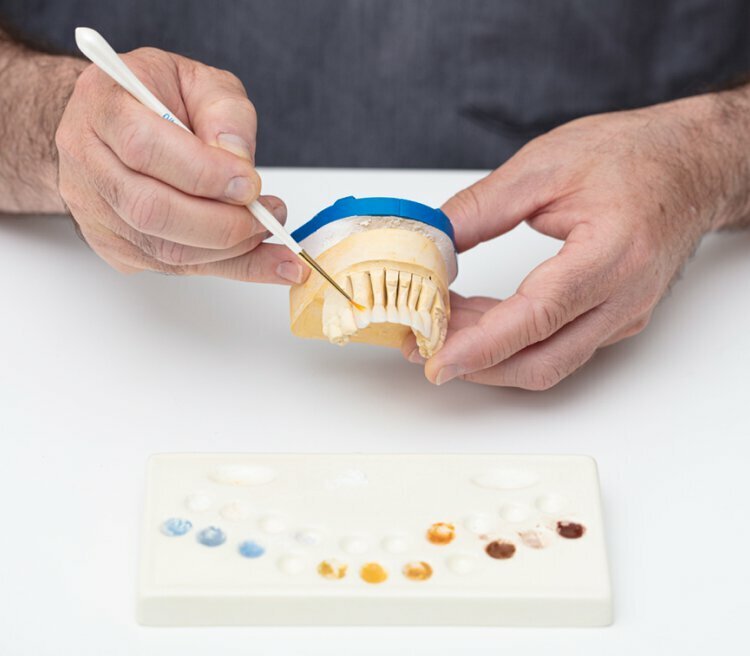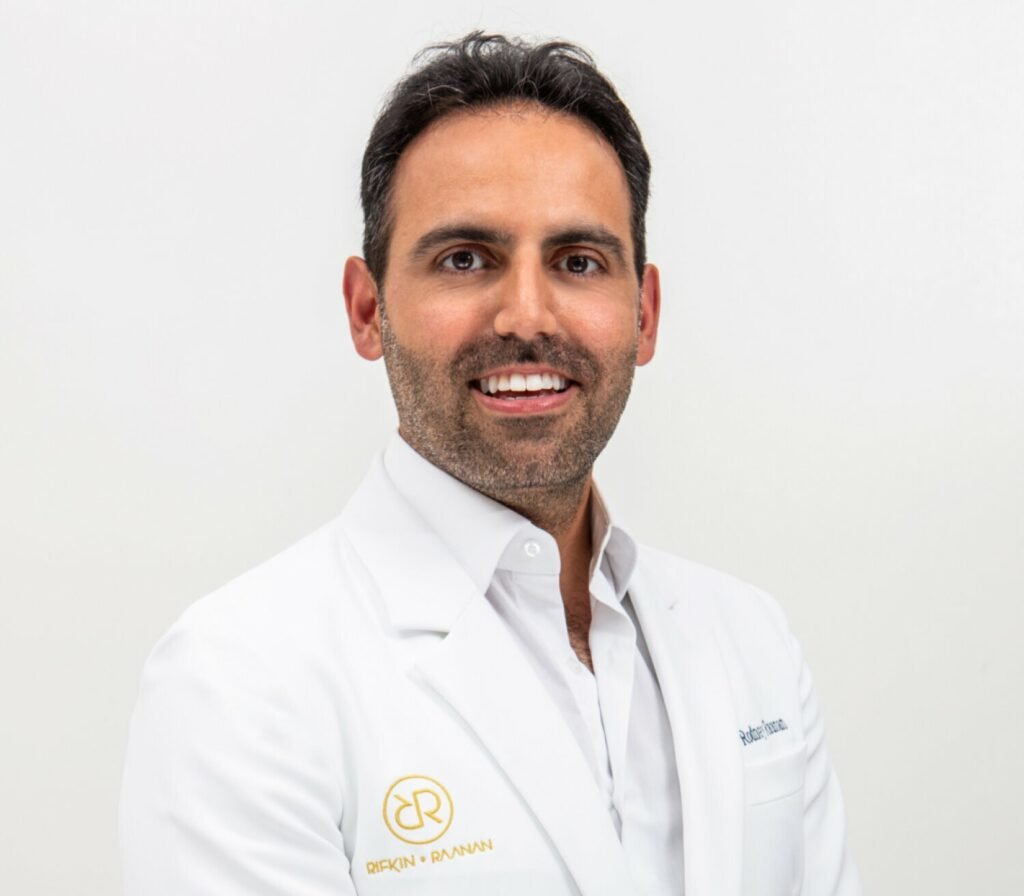For residents of Beverly Hills, achieving and maintaining healthy gums is a cornerstone of overall oral well-being. This guide offers essential care tips and insights on gum care and periodontal well-being.
Understanding Your Gums: Periodontal Health
Periodontal health refers to the health of your gums and the supporting structures of your teeth. Periodontal disease, often caused by plaque and bacteria buildup, can lead to significant damage to your teeth and soft tissues. If left untreated, it can even contribute to more serious health issues, including heart attack and stroke.
Common symptoms include:
- Swollen tissues
- Redness
- Bleeding
While this condition cannot be fully cured, it can be effectively controlled and managed through various treatments.
The Silent Threat: Recognizing Periodontal Symptoms
It’s vital to recognize the early signs of periodontal issues to seek timely intervention. Here’s a look at the typical prevalence of common symptoms among those experiencing initial gum issues:
Chart 1: Reported Prevalence of Initial Periodontal Symptoms (Hypothetical Data)
| Symptom | Percentage of Patients Reporting |
|---|---|
| Bleeding Gums | 75% |
| Red/Inflamed Gums | 60% |
| Swollen Gums | 50% |
| Bad Breath | 35% |
| Tender Gums | 30% |
Disclaimer: The data in this chart is hypothetical and for illustrative purposes only. Actual prevalence rates may vary.
Advanced Treatments for Gum Disease
For those experiencing gum disease, modern dentistry offers advanced treatment options to help control the condition and restore health to the periodontium. These include:
- Scaling and Root Planing: This is a deep cleaning procedure that removes plaque and tartar from above and below the gum line, and smooths the tooth roots to prevent further bacterial accumulation. For more on advanced gum treatments, you can visit our services page.
- Advanced Laser Therapy: Laser treatment is an innovative approach that can offer a more comfortable experience compared to traditional methods. Benefits often include less discomfort, faster healing times, and shorter procedure durations.
These advanced methods are particularly effective for patients in Beverly Hills seeking to restore their healthy gums and overall dental well-being. Healthy gums are particularly vital for individuals considering dental implants, as gum disease can significantly hinder the healing process and the success of the implant. Learn more about dental implant solutions as part of our cosmetic dentistry options.
Essential Gum Care Tips for Healthy Gums in Beverly Hills
Proactive gum care is the best defense against periodontal disease. Here are some key tips to keep your gums healthy:
- Thorough Cleanings: Regular professional cleanings are essential to remove plaque and tartar buildup that at-home brushing can’t tackle. This prevents gum-related issues before they escalate.
- Proper Brushing: Brush your teeth at least twice a day using a soft-bristled toothbrush and a fluoride toothpaste. Pay attention to the gum line, using gentle, circular motions.
- Daily Flossing: Flossing daily is crucial for removing food particles and plaque from between your teeth and along the gum line, areas your toothbrush can’t reach.
- Antiseptic Mouthwashes: Incorporating an antiseptic mouthwash into your routine can help reduce bacteria in your mouth and fight gum disease.
- Regular Dental Check-ups: Most individuals benefit from dental visits every six months. However, if you are at a higher risk for gum disease, your dentist may recommend more frequent cleanings and check-ups to monitor your gum health closely.
The Power of Prevention: The Impact of Regular Dental Visits
Consistent dental care significantly reduces the risk of developing severe periodontal disease. Prioritizing regular check-ups and cleanings is an investment in your long-term dental well-being.
Chart 2: Hypothetical Risk of Severe Gum Disease vs. Dental Visit Frequency
| Dental Visit Frequency | Hypothetical Risk of Severe Gum Disease |
|---|---|
| < 1 Time/Year | 60% |
| 1 Time/Year | 30% |
| 2 Times/Year | 10% |
| 3+ Times/Year | 5% |
Disclaimer: The data in this chart is hypothetical and for illustrative purposes only. Actual risk factors and outcomes vary by individual.
Your Gum Health Questions Answered: Q&A
Have more questions about gum health? Here are some frequently asked questions to help you maintain a healthy smile:
Q: What exactly is gum disease (periodontal disease)?
A: Gum disease is an infection of the tissues that hold your teeth in place. It’s typically caused by poor brushing and flossing habits that allow plaque, a sticky film of bacteria, to build up on the teeth and harden.
Q: What are the earliest signs of gum disease I should look out for?
A: The earliest sign is often gingivitis, characterized by red, swollen, or bleeding gums, especially during brushing or flossing. You might also notice bad breath.
Q: How often should I floss?
A: You should floss at least once a day. Flossing helps remove food particles and plaque from between your teeth and under the gum line, areas your toothbrush can’t reach.
Q: Is gum disease curable?
A: While the damage from advanced gum disease cannot always be fully reversed, the disease itself can be controlled and managed through professional treatment and diligent home care. Early-stage gingivitis can often be fully reversed.
Q: What happens if gum disease is left untreated?
A: Untreated gum disease can lead to tooth loss, damage to the jawbone, and has been linked to other serious health conditions like heart disease, stroke, and diabetes complications.
Q: Why are regular dental check-ups so important for gum health?
A: Regular check-ups allow your dentist to identify early signs of gum disease, remove hardened plaque (tartar) that you can’t remove at home, and provide professional cleanings that are crucial for preventing progression of periodontal disease.
Q: What is scaling and root planing?
A: Scaling and root planing is a non-surgical deep cleaning procedure that involves removing plaque and tartar from above and below the gum line (scaling), and smoothing the root surfaces to prevent further bacterial buildup (root planing).
Q: What are the benefits of advanced laser therapy for gum disease?
A: Laser therapy offers benefits such as less discomfort, reduced bleeding, faster healing times, and shorter procedure durations compared to traditional surgical methods for treating gum disease.
Q: Can my diet affect my dental health?
A: Yes, a balanced diet rich in vitamins and minerals (especially Vitamin C and calcium) supports overall dental health, including your gums. Sugary foods and drinks can contribute to plaque buildup and should be consumed in moderation.
Q: I have good gums now, how can I ensure they stay that way?
A: Maintain excellent hygiene, attend regular check-ups, and avoid smoking for optimal gum health.
By following these tips and seeking professional care when needed, you can maintain healthy gums and a radiant smile, ensuring your dental health contributes positively to your overall well-being in Beverly Hills and beyond.




